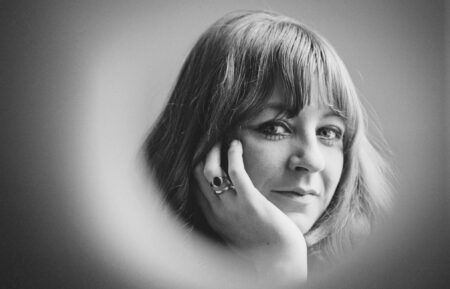Lindsey Buckingham

Singer • Songwriter • Musician • Record Producer
Birth Date: October 3, 1949
Age: 75 years old
Birth Place: Palo Alto, California
Partners: Stevie Nicks, Anne Heche
Bands: Fleetwood Mac
An enormously gifted presence in American rock-n-roll since the early 1970s, Lindsey Buckingham rose to fame as a key figure in the stratospheric ascent of Fleetwood Mac on the strength of the album Rumours (1977). Along with then-girlfriend Stevie Nicks, Buckingham's intensely personal lyrics and precise, finger-picked guitar work on songs like "Go Your Own Way" and "The Chain" helped to make the album one of the most popular rock releases of the decade, if not the late 20th century.
But behind the record's sun-dappled harmonies and pop-rock groove were lyrics about longing and loss, fueled in part by the breakup of Buckingham and Nicks' relationship. He would, apart from the group, also define himself through a solo career that hinged on more modern sounding material like 1984's electronic-driven "Go Insane." Buckingham severed ties with Fleetwood Mac in 1987, only to return as a full-fledged member in 1997 for a wildly popular series of reunion tours.
The exposure afforded by the reunited Mac eventually boosted his solo career, which broke into the Top 50 in the new millennium. Ever restless and inventive with his music, Buckingham was able to reconcile his classic work with Fleetwood Mac with his solo ambitions -- combining the two with a duet album with bandmate Christine McVie in 2017 -- thus preserving his status as one of rock's most talented and dedicated figures. It was announced in April 2018 that Buckingham had chosen to depart Fleetwood Mac once more.
Lindsey Adams Buckingham was born Oct. 3, 1949, in Atherton, an upper-middle-class suburb of Palo Alto in California's Bay Area. The youngest of three sons by coffee company owner Morris Buckingham and his wife Rutheda, Buckingham's first interest was competitive swimming, an arena in which his older brother Greg won a silver medal at the 1968 Olympic Games in Mexico City. But sports were soon put aside in favor of music, thanks in part to Greg Buckingham's extensive collection of 45-rpm singles, to which Lindsey would often play along with a Mickey Mouse guitar.
He honed his talents by teaching himself to play in the energetic, fingerpicked style of the Kingston Trio, and gave his first public performances while a student at Menlo-Atherton High School. For one such show, Buckingham, then a junior, was joined by another aspiring singer-guitarist, senior Stephanie Nicks, who was better known by her nickname, Stevie. In 1967, Buckingham and Nicks began their own rock group, The Fritz Rabyne Memorial Band, with two fellow students from Menlo-Atherton. Buckingham's fingerpicked style proved unsuitable for the heavier guitar sounds of the period, so he switched to bass for the duration of the group, which quickly advanced from high school parties to opening slots for major acts like Santana, Janis Joplin and Jimi Hendrix.
During this period, Buckingham also taught himself to use recording equipment after purchasing an Ampex four-track recorder with money received from a distant relation's will. Fritz would disband in 1971, but Buckingham and Nicks remained together as both a professional and romantic duo.
The couple soon moved to Los Angeles, but their pursuit of a career in music was initially beset by numerous problems. Buckingham was bedridden with a yearlong bout of mononucleosis, which he shrewdly utilized to improve his skills with electric guitar. A seven-track demo of their music made its way to Polydor Records, which resulted in an album, Buckingham Nicks, in 1973. Despite solid songwriting from both partners and a stellar lineup of backing musicians, including legendary drummer Jim Keltner and guitarist Waddy Wachtel, the record was a commercial failure, which prompted Polydor to drop them from their roster.
To support themselves, Buckingham toured with Don Everly while Nicks waitressed, but they were soon in such dire financial straits that they moved into a one-bedroom apartment with future Fleetwood Mac producer-engineer Richard Dashut. There, Buckingham and Nicks began working on demos for several songs that would become part of the Fleetwood Mac catalog, including Buckingham's "Monday Morning" and "I'm So Afraid."
In 1974, British blues band Fleetwood Mac was in search of a new guitarist to replace outgoing member Bob Welch. Drummer and founding member Mick Fleetwood heard the Buckingham Nicks tune "Frozen Love" while touring the Sound City recording studio, and asked Buckingham to join the group. He accepted on the condition that Nicks also be brought into their fold, which Fleetwood accepted on New Year's Eve in 1974. Their first effort as members of Fleetwood Mac was the band's 1975 eponymous record, which reached No. 1 the following year on the strength of three hit singles, including Nicks' "Rhiannon," which she and Buckingham had written during their lean years.
However, the success of the album was quickly eclipsed by the overwhelming reaction to its follow-up, Rumours (1977).
Prior to Rumours, Fleetwood Mac had been a popular and long-running act, but never quite a top-tier band on par with other rock groups. With the release of this album in early 1977, the band rose to the heights of the music business, largely on the strength of their gorgeous melodies and harmonies, as well as confessional songs which hewed closely to the decade's confessional singer-songwriter movement. The result was not only their second No. 1 album in less than two years, but also a Grammy winner for Album of the Year and multi-platinum sales, with over eight million copies sold in the United States alone.
But the runaway success of the album came at a steep price for the members of Fleetwood Mac, whose close interpersonal relationships collapsed under the weight of label pressure, considerable drug usage and the vagaries of fame.
Bassist John McVie's marriage to keyboardist Christine McVie came undone prior to recording the album, which meant that the pair spoke to each other only in regard to music matters. Fleetwood too found his marriage under strain after his wife Jenny Boyd had carried on an affair with former Fleetwood Mac guitarist Bob Weston. As for Buckingham and Nicks, their relationship had begun to unravel due to intense arguments over creative and personal issues. The relationship was eventually severed for good during the Rumors recording sessions. Adding salt to the wound, Buckingham was less than happy to discover that Nicks had begun a clandestine romance with Fleetwood after his marriage had ended. He poured his anguish and barely contained anger into some of the record's most popular songs, including the fiery "Go Your Own Way" and "The Chain," both of which detailed the end of a relationship in emotionally powerful, often brutal terms.
Despite the turmoil endured by the members of Fleetwood Mac, the demand for more material forced them to reunite in 1979 for Tusk, an ambitious double album overseen largely by Buckingham in his own home. Though Tusk peaked at No. 4 on the albums chart, achieving platinum status upon its release, Buckingham's spare production, which drew inspiration from the growing punk and New Wave movements, generated only two Top 10 hits, including the bizarre title track, which featured the USC Trojans marching band. It was eventually regarded as a failure by the band's label, Warner Bros., which had envisioned Rumours-sized sales figures for the record, and placed the blame squarely on Buckingham. A concert album, Fleetwood Mac Live, was slated for their next release, much to the chagrin of the moody guitarist, who feared that the band was already beginning to repeat itself.
Buckingham released his first solo album, Law and Order, in 1981. A quirky record with the same New Wave influences as Tusk, it featured Buckingham on nearly every instrument, as well as guest appearances by Fleetwood and Christine McVie. The record eventually spawned a Top 10 single with the moody "Trouble," but only reached No. 32 on the Billboard album chart, where it was overshadowed by Nicks' chart-topping solo debut, Bella Donna (1981). By the following year, the ever competitive former lovers had been lured back to the Fleetwood Mac fold to record Mirage (1982), which returned the group to its former prominence by reaching No. 1 on the album charts.
But the reunion was short-lived; past tensions made it difficult for the individual members to even record in the same studio, and it would be another five years before Fleetwood Mac would release a follow-up record. In the interim, Buckingham would record a slew of solo material, including the bouncy, retro "Holiday Road" single, which was featured on the soundtrack for the film "National Lampoon's Vacation" (1982). A second solo album, Go Insane (1984), earned a Top 30 hit with the title track, but fared the same as its predecessor in sales.
By 1987, Buckingham was back in Fleetwood Mac for Tango in the Night, which featured a number of songs, including the Top 10 lead single, "Big Love," which he had slated for his third solo effort. A massive hit around the globe, it sold over 2 million records in the U.S. alone, but as with Rumours, the record underwent a difficult gestation. Considerable pressure was applied to Buckingham as the record's co-producer (with Richard Dashut) to generate a hit album and go on tour, something he had been reluctant to do since 1980. Buckingham was desperate to return to his solo work, and following an allegedly physical altercation with Nicks during a band meeting, he officially left the group shortly after the album's release. For the subsequent tour, veteran guitarists Rick Vito and Billy Burnette replaced him.
After taking a year-long sabbatical, Buckingham settled into a four-year period of recording his third solo album, Out of the Cradle (1992). Again, he performed all of the vocals and instrumentation on the record, which addressed the painful premature loss of both his father and brother Greg, who had died suddenly in 1990. The record received stellar reviews, but generated low sales, reaching only No. 128 on the Billboard albums chart. He would spend the majority of 1992 and 1993 on tour with a band that featured seven additional guitarists, each of whom had to be individually taught their parts by Buckingham.
In 1992, Buckingham reunited with the Rumours-era lineup of Fleetwood Mac for a special performance at the inaugural ball for President Bill Clinton, an admitted fan who had used their hit single "Don't Stop" as his campaign song. The performance was well received, but the band members remained at odds with each other after the Tango in the Night debacle. News of a reunion was quickly quashed. Buckingham was soon back at work on what was intended to be his fourth solo record, titled Gift of Screws. During the recording process, he reached out to Fleetwood to contribute to a track, which soon fostered a reconciliation between the two musicians. The pair soon invited Nicks and the McVies to join the project, which in turn spawned a popular TV special, "The Dance" - in which Nicks sang a highly emotive version of her ode to their past relationship, "Silver Spring," to Buckingham's face as he admirably took the vocal assault - and wildly successful reunion tour in 1997, as well as a live album, The Dance, which debuted at No. 1 on the Billboard 200 that same year. In 1998, Buckingham was inducted into the Rock and Roll Hall of Fame as a member of Fleetwood Mac and the original lineup seemed to back, healthy and happy to be reunited.
Buckingham submitted Gift of Screws to Warner Bros. / Reprise in 2001, but the label insisted that he hold back the record in favor of a Fleetwood Mac reunion album. Seven songs from Gift of Screws were re-recorded by the band, which by 1998 no longer featured Christine McVie, who had retired to move back to England. The Mac album, Say You Will (2003), rose to No. 3 on the album charts, generating two Top 40 Adult hits with Buckingham's "Peacekeeper" and the title track. Following his duties with Fleetwood Mac, which soon encompassed a concert album, Live in Boston (2004), he resumed his solo career, generating his fourth record, Under the Skin (2006) and the concert record Live at the Bass Performance Hall (2008), which chronicled his 2007 tour in support of the album. The following year, a new version of Gift of Screws, featuring three songs from the original sessions and seven newer tracks, was released to widespread acclaim. It eventually reached No. 48 on the album charts, which marked his highest placement since 1984.
In 2009, he largely devoted his time to a world tour with Fleetwood Mac. A U.K. documentary, "Fleetwood Mac: Don't Stop" (BBC One) was broadcast that year, which featured candid interviews with all four current members and their still-tenuous relationships with each other. Following the conclusion of the tour, Buckingham released his sixth solo album, Seeds We Sow (2011), which coincided with revived interest in Rumours due to an episode of "Glee" (Fox, 2009-2015) which featured six songs from the album. The show's popularity put the album back on the charts at No. 11 while providing significant sales boosts to Seeds We Sow, which tied Go Insane as his highest charting solo effort to date, and Nicks' solo album, which debuted at No. 6 on the album chart.
Buckingham kicked off a solo tour in late September 2011, which was slated to include his first solo tour of the United Kingdom. However, a back injury forced him to cancel the European dates. He subsequently returned to the road the following year for a solo acoustic tour of the United States throughout 2012. During this period, Buckingham remained connected to the Fleetwood Mac camp, which announced and then revoked news of a 2012 tour, due largely to conflicts over Nicks' solo career. Tired of waiting for Nicks to rejoin the fold, Buckingham and McVie joined forces for the duet album Lindsey Buckingham and Christine McVie, released in June 2017; featuring bass and drum work from John McVie and Mick Fleetwood, it was for all intents and purposes a Fleetwood Mac LP minus Nicks.
Credits
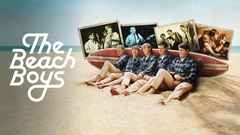
The Beach BoysStream

Lindsey Buckingham: Did You Miss Me (Track Commentary)

Lindsey Buckingham: Gift of Screws Spot

Lindsey Buckingham: Wait For You (Track Commentary)

Fleetwood Mac: Their Own Way

Roadies
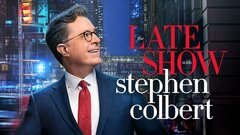
The Late Show With Stephen ColbertStream

The Late Late Show With James Corden

The 56th Annual Grammy Awards

OnSTAGE

Lindsey Buckingham With Special Guest Stevie Nicks

Stevie Nicks - Through the Looking Glass

Sound City

Fleetwood Mac: Live in Boston

Larry King NowStream

CBS This Morning: Saturday

Lindsey Buckingham -- Songs From the Small Machine

ConanStream

The Talk

Fleetwood Mac: Don't Stop
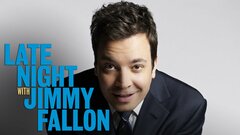
Late Night With Jimmy Fallon

Private Sessions

Lindsey Buckingham: It Was You

Lindsey Buckingham: Show You How

Lindsey Buckingham - Live at Soundstage

Fleetwood Mac: Unbroken Chain

Tavis Smiley

Fleetwood Mac: Unbroken Chain

Jimmy Kimmel Live!Stream

American IdolStream

Fleetwood Mac: The Dance
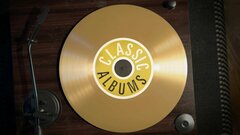
Classic AlbumsStream
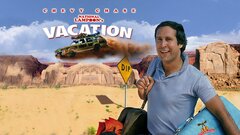
National Lampoon's VacationStream

Saturday Night LiveStream










